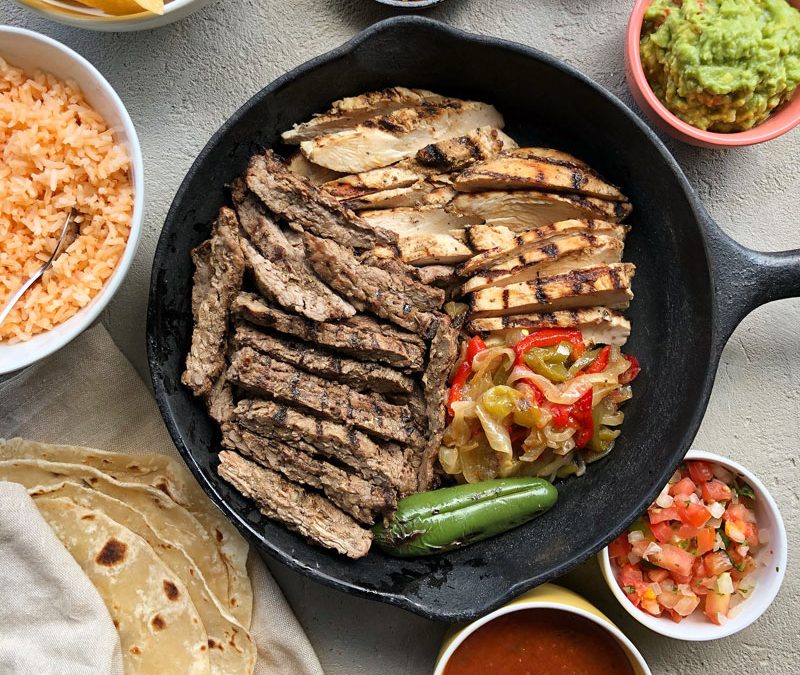There are only four tables inside a Fajita Pete’s. That’s not a setup that could work for a lot of restaurants, but when dine-in orders account for less than 10 percent of sales, a handful of seats is plenty.
“We don’t just sell fajitas, we sell convenience,” says Pedro “Pete” Mora, founder of Houston-based Fajita Pete’s, where the majority of sales, about 90 percent, are from catering, delivery and pick-up orders—exactly how Mora intended it.
From its 1,200-square-foot restaurants, the 10 locations of Fajita Pete’s across Texas put out fresh-grilled fajitas by the pound, alongside a limited menu of other Mexican items such as enchiladas and burritos. It’s a menu carefully curated by Mora, who after opening a full-service, 6,500-square-foot restaurant when he was 23 learned by his second year of operation that catering and delivery orders from local offices were really driving the business.
“I looked at my menu and what was selling and I took what would travel well, which was fajitas,” says Mora. “The fajitas were perfect.”
With his lease up, Mora pivoted, opening the first Fajita Pete’s in Houston in 2008. “People can mix and match what they want,” he says of the various fajita combinations, “so it’s great, especially for office catering or large groups.”
The average ticket price is about $44, Mora says, and they’re also now delivering margaritas, which he says is an enticing add-on and popular for parties. Fajita Pete’s employees handle all the deliveries, although one franchisee is testing a third-party delivery service.
“It doesn’t make sense for me to give away 30 percent of that ticket,” explains Mora, in reference to the commission charged by national delivery players that can range from 15 to upwards of 30 percent. That franchisee who’s trying it out is in a new market for Fajita Pete’s and views it more as a marketing tool to introduce the brand to new customers.
Mora does credit those third-party services with helping to popularize delivery among consumers. Even though “Fajitas Delivered” is part of Fajita Pete’s logo, there is still some confusion for guests who think it’s purely a catering operation. A logo redesign is underway, along with a brand refresh, the result of being able to work with a restaurant-focused marketing firm following an investment from Circle G Partners.
A family office with about $50 million of partner investable capital, Circle G formed with the goal of developing restaurant franchises in Houston. Fajita Pete’s is its first investment, and partner Ben Guill said Mora and business partner Joey Eguia are “incredible operators” who created an attractive low-cost, high-volume concept ready to scale.
“They have a really first-class product and the business model of small-square-foot stores with a focus on takeout and delivery, that’s what we loved,” says Guill, noting that “even on a bad week” sales are about $14,000. “It’s a very appealing business model.”


